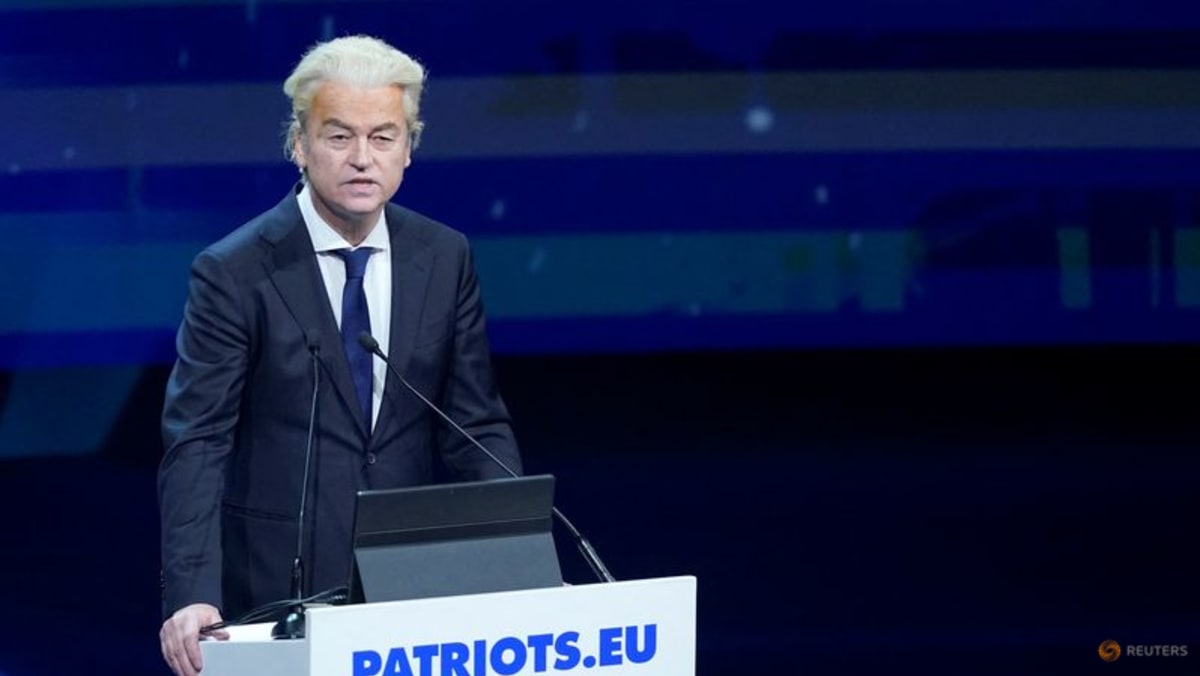AMSTERDAM: Dutch far-right leader Geert Wilders’ PVV party left the governing coalition on Tuesday (Jun 3), in a move that is set to topple the right-wing government and will likely lead to new elections.
Wilders said his coalition partners were not willing to support his ideas on halting asylum migration.
“No signature under our asylum plans. The PVV leaves the coalition,” Wilders said in a post on X.
Wilders said he had informed Prime Minister Dick Schoof that all ministers from his PVV party would quit the government. Schoof has not yet reacted to the resignation.
Wilders’ surprise move ends an already fragile coalition which has struggled to reach any consensus since its installation last July.
It will likely bring new elections in a few months, adding to political uncertainty in the euro zone’s fifth-largest economy.
It will likely also delay a decision on a possibly historic increase in defence spending to meet new NATO targets.
And it will leave the Netherlands with only a caretaker government when it receives NATO country leaders for a summit to decide on these targets in The Hague later this month.
DISBELIEF, ANGER
Wilders’ coalition partners responded with disbelief and anger.
“This is making us look like a fool,” the leader of the conservative VVD party, Dilan Yesilgoz, said. “There is a war on our continent. Instead of meeting the challenge, Wilders is showing he is not willing to take responsibility.”
“This is incredible,” leader of the centrist NSC party Nicolien van Vroonhoven said. “It is irresponsible to take down the government at this point.”
With PVV out, the others parties have the theoretical option to try and proceed as a minority government. They are not expected to, and have yet to confirm it.
Wilders won the most recent election in the Netherlands, but recent polls show he has lost support since joining the government.
Polls now put his party at around 20 per cent of the votes, roughly at par with the Labour/Green combination that is currently the second-largest in parliament.
Wilders had last week demanded immediate support for his proposals to completely halt asylum migration, send Syrian refugees back to their home country and to close asylum shelters.
Coalition partners did not embrace his idea, and had said it was up to the migration minister from Wilders’ own party to work on specific proposals. Wilders was not part of the government himself as its leader or a minister.
He was convicted for discrimination after he insulted Moroccans at a campaign rally in 2014 and only managed to strike a coalition deal with three other conservative parties last year after he gave up his bid to become prime minister.
Instead, the cabinet was led by the independent and unelected Schoof, a career bureaucrat who had led the Dutch intelligence agency AIVD and was the senior official at the ministry of justice.
